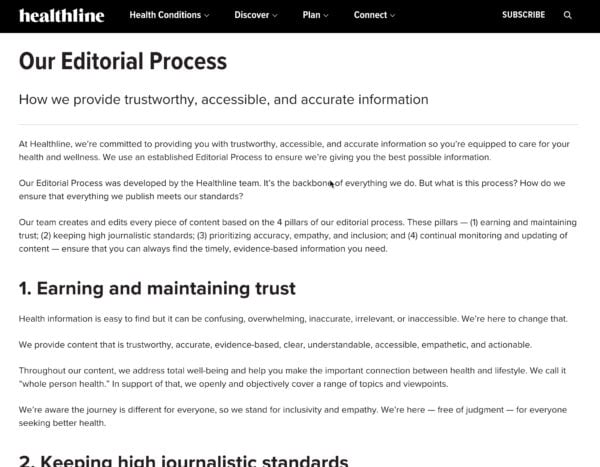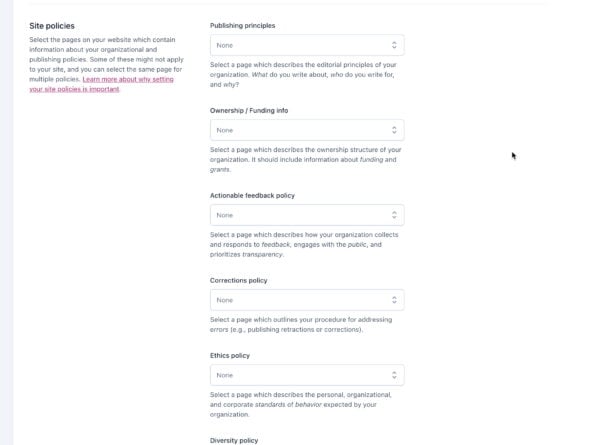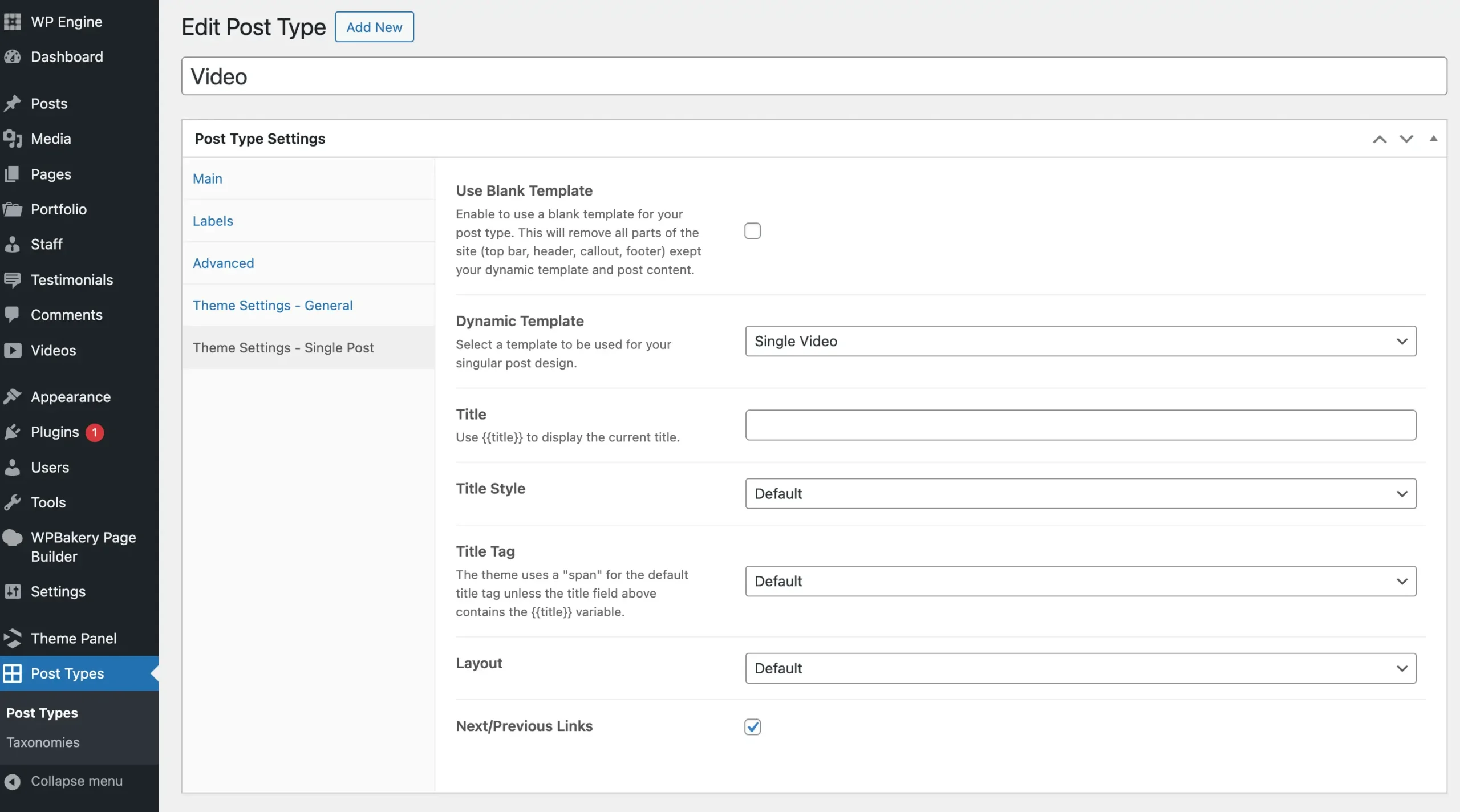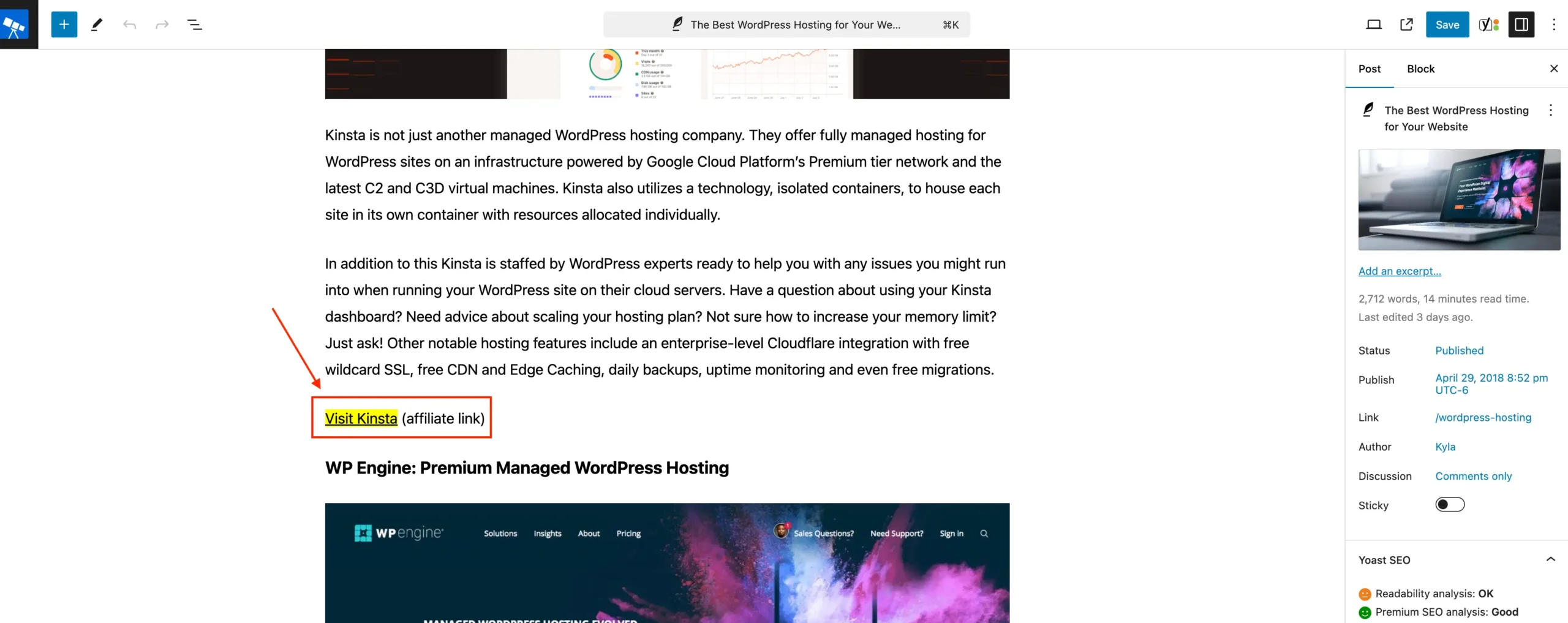experience, expertise, authority, and trustworthiness (E-E-A-T) is crucial for YMYL content creators. This includes making sure the information is up-to-date, fact-checked, and sourced. Including credentials, expert reviewers, author biographies, and external references can further enhance the YMYL content.
When users see a YMYL website as trustworthy and credible, they are likely to visit it often, share the content with others, and become loyal customers or clients. Search engines also consider user trust signals, such as engagement metrics and positive reviews, when checking the quality of YMYL content.

YMYL and the Google Quality Raters’ Guidelines
Google’s Quality Raters’ Guidelines play a pivotal role in assessing the quality and relevance of web pages, especially YMYL content. These guidelines provide insights into how Google evaluates the E-E-A-T of sites, which is essential for optimizing YMYL pages well.
Insights into Google’s guidelines for YMYL pages
The Google Quality Raters’ Guidelines outline specific criteria for evaluating YMYL content. These guidelines help Google validate that its algorithm understands and ranks web pages appropriately. Some critical factors considered within the guidelines include:
- Experience: For YMYL topics such as finance or health, having experience could mean that the content creator has worked as a financial advisor, a healthcare professional, or has a background in a specific field. This experience provides credibility and expertise that can be valuable when creating YMYL content.
- Expertise: Google expects YMYL content to be created by individuals or organizations with a demonstrable level of expertise in the field. You can show this expertise through qualifications, experience, industry recognition, and contributions to reputable publications.
- Authoritativeness: Google gives weight to YMYL content from authoritative sources. This can include sites that have established credibility in the respective industry, are recognized by experts or organizations, or have a strong reputation for publishing accurate and reliable information.
- Trustworthiness: Trustworthiness is crucial for YMYL content. Google evaluates factors such as transparency, accuracy of information, and transparent disclosure of potential biases. Websites with a history of complaints, misinformation, or malicious intent are likely to be seen as less trustworthy.
- Content quality: Google expects high-quality YMYL content to provide comprehensive and insightful information. The guidelines emphasize the importance of avoiding shallow content. YMYL pages should satisfy user intent by addressing the main concerns and questions related to the topic.

How Quality Raters assess E-E-A-T
Evaluating E-E-A-T factors by Google’s quality raters checks various factors to determine content creators’ or website owners’ experience, expertise, authoritativeness, and trustworthiness.
While the exact details of the process are unknown, quality raters consider vital elements when checking the experience of individuals or organizations. These aspects help determine the level of expertise and authority.
Key factors
Here are some factors they look at:
- Qualifications and credentials: Quality raters examine the qualifications and credentials of content creators, such as formal education, certifications, and professional qualifications directly related to the topic. These indicators show a commitment to learning, acquiring knowledge, and advancing within the field, adding credibility to their expertise.
- Professional experience: The practical experience of content creators or website owners within the industry is an important aspect evaluated by quality raters. This can include previous work experience, industry involvement, or practical expertise gained through specific projects or research. Raters assess the depth of experience to determine the level of knowledge.
- Demonstrated knowledge and authority: Raters assess content to determine the creators’ depth of knowledge and authority. This can be evaluated through comprehensive and detailed explanations, referencing reputable sources, and providing unique insights or perspectives. The ability to offer valuable information and display up-to-date expertise in the field is crucial in establishing the perceived authority.
- Industry recognition: Quality raters consider any industry recognition or acknowledgment received by the content creators or website owners. This can involve awards, honors, invitations to speak at conferences or inclusion in expert lists or directories. Such recognition highlights the expertise and authority within the industry, further solidifying their credibility.
- User feedback and engagement: User feedback, reviews, and testimonials may also be considered by raters in evaluating experience. Positive feedback, active engagement with the audience, and a history of providing valuable and helpful information indicate an experience that resonates with users and builds trust.
Refining algorithms
It is significant to note that quality raters provide feedback to Google, which uses this information to refine algorithms and improve search results. While quality raters do not directly influence rankings, their assessments are crucial in helping Google understand if everything works as intended.
Yoast SEO, E-E-A-T, YMYL and site policies
Yoast SEO Premium enhances your website’s E-E-A-T. As we’ve seen in this article, Google considers multiple factors to evaluate the quality of YMYL sites. To help Google understand your site, Yoast SEO Premium offers various options to direct it to the proper sources. Publishing principles and site policies play a vital role in this process, providing valuable insights for Google. In Yoast SEO Premium, we can incorporate these pages in your structured data.
Publishing principles and site policies are guidelines that govern content creation and dissemination. These principles ensure that your content upholds accuracy, integrity, relevance, transparency, engagement, privacy, accessibility, continuous improvement, and legal compliance. Adhering to these principles results in high-quality content users can trust.
Yoast SEO Premium includes the publishingPrinciples schema to assist with this, making it recognizable and valuable to search engines. Head to the Site basics settings in Yoast SEO and navigate to the Site policies section.
Here, you’ll find different options for publishing principles, such as general publishing principles, funding information, corrections policy, ethics policy, diversity policy, and more. Select the appropriate pages from the fields provided, and you’re all set. If you still need to set up these policies, now is a great time to start crafting them to enhance your website’s credibility and SEO performance.

Conclusion
Unlocking the power of YMYL for SEO success is a multi-faceted endeavor. By aligning with Google’s guidelines, establishing E-E-A-T, and using effective optimization techniques, you can drive organic traffic to your YMYL website, establish trust with your audience, and position yourself as a leader in your industry.



